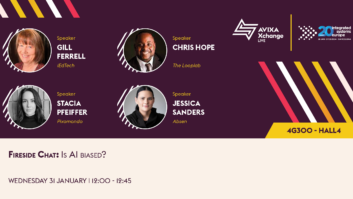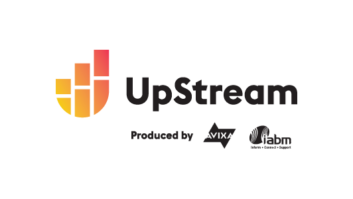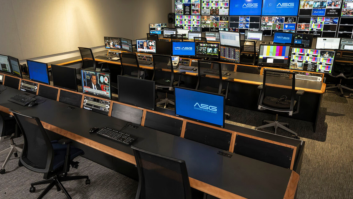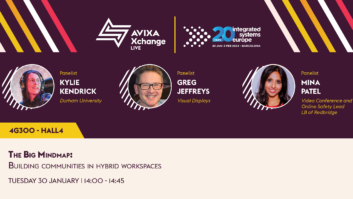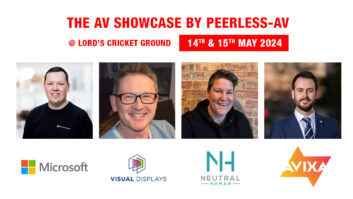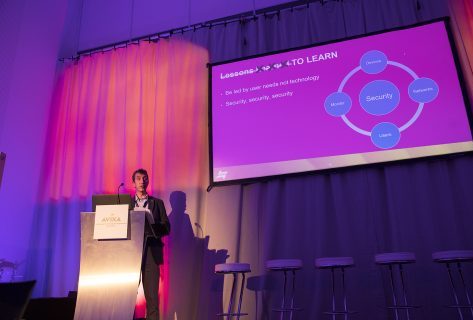
In its two conferences yesterday afternoon, AVIXA looked at what’s next in integrated experiences. Focussing on two key market sectors – enterprise and education – Thales’ senior engineer Richard Paker discussed how, if you’re not careful, technology can lead; while principal of Essex-based PROCAT Ros Parker showed how her organisation is using VR programmes to teach construction and engineering skills.
Thales is a French multinational with a powerful reputation in the aerospace and defence industries, something which presented some serious headaches for Packer, as he sought to bring together the AV demands for some 650 people at its new HQ building in Reading.
He told delegates that his challenges included bringing the IT department on board, as well as having to get the system approved by his senior managers, “many of whom didn’t really understand AV!”
His ‘new’ building was formerly occupied by Cisco but had been empty – other than by spiders – for the past 15 years, and entailed bringing together three separate Thales locations.
Starting with a clean sheet of paper, there was considerable input in terms of ideas and possibilities from potential system integrators. From six would-be bidders the number was whittled down to one – although
Packer admitted that he inherited a real “dog’s dinner” in terms of existing facilities.
“We knew we needed many meeting rooms, and settled on 15 which we called ‘standard’; a further 10 ‘special’ rooms with a higher degree of equipment; and six multi-purpose rooms. For good measure, the CEO wanted something for the reception area that said ‘Wow’.”
However, Packer stressed that one element which was rather special to Thales was security: “We could not permit any risks, either by accident or design. This gave us a huge number of extra headaches. We knew that getting something wrong would risk wrecking the network.”
Packer’s end advice to his colleagues was not to be led by technology alone: “Speak to your users and fully understand their aims, but also ensure that you can fully monitor the complete system. And plan for the future – our industry is evolving rapidly and we need to be prepared.”
Meanwhile, Ros Parker talked about a virtual house that allows trainee electricians, plumbers and builders to rewire a house in a safe environment, or to use piping without wasting expensive materials.
She told delegates that there are several “trial and error scenarios” at the college, which is the UK’s first College of Advanced Technology.
“If things go wrong when the headsets are on,” she said, “the TV in the lounge could blow up; or if they walk on the rafters they will fall through the ceiling – albeit a virtual one.”
The college principal added that the technology also allows them to virtualise materials such as piping for the college’s level two and three plumbing students, while its trainee engineers can also learn about track and rolling stock prior to site visits.
“The technology allows us to be much more cost efficient with our physical materials, and it helps prepare students for real environments much quicker,” she added. According to Parker, this accelerated learning meant students that used VR in their studies were were performing tasks in week 10 that those who did not use the technology would be doing for another ten weeks.
The college is also experimenting with other technical innovations such as robots for coding – although she added that the college’s own bot is currently being repaired in France after students programmed it to do Tai Chi, causing it to fall off a table and break its arm.

